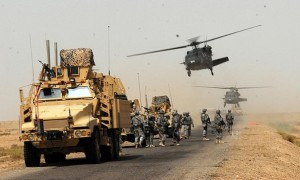It is jarring. It shouldn’t be, but given the strategic actions of the leading state, it is. We all have gotten so used to the exercise US military muscle (or not), especially in the Middle East, it is shocking almost, to see diplomacy in the lead. It takes some getting used to. So the Iran deal has been concluded. As Robin Wright described it in The New Yorker:
The agreement is the Obama Administration’s boldest foreign-policy initiative. It marks the first success in dealing with Iran since its 1979 revolution and the prolonged seizure of the American Embassy in Tehran.
Reflecting on the diplomatic mechanism, the Iran foreign minister suggested in the same article:
As diplomacy got down to the final hours, Zarif tweeted Monday, “If #IranDeal reached, triumph of diplomacy means we all will have won when we all could have lost. Plain and simple; no spin needed.”
But it is not just the Iran deal. We are still trying to digest the decision by the United States and Cuba to move to the normalization of their relations after many decades. It seems likely later this month that the US and Cuba will open their embassies each in the other country for the first time since 1961 and the current Secretary of State will attend in Cuba.
Our expectations have been so defined by the post 9/11 world – the strategic choices in Afghanistan, Iraq – that we are shocked by the lead taken by diplomacy in a difficult global order issue.
Now it is not that there aren’t diplomatic approaches to international relations. Indeed the ‘Rise of the Informals’ first the Club of the Rich with the G7 but then following the global financial crisis the Summit leaders level G20 are both settings for diplomatic engagement. But these diplomatic efforts are largely ignored. First there is continuing disappointment over the advances that the G20 has made since assisting the global economy to step back from the abyss. And then there is the subject matter – the global economic and financial order. Not the real stuff of global order concerns by many experts and commentators. No not the tough geopolitical matters – the high politics of war and peace, etc., etc.,
As we try and frame the global order today there is no question that preventing Iran from acquiring nuclear weapons rises to the top of global order concerns. Therefore an agreement which backs up the Iranians and puts them a year from breakout, as opposed to two to three months, is a big deal. And all the disappointments that Iran is not completely defanged, or that it is abandons support for some of the ‘bad guys’ in the Middle East, well it was never going to be. And the real measure of the success of diplomacy here, is what would we choose in the alternative.
The continuing dilemma is to understand the character of the global order today. Much has been written about the return of geopolitics and the rising disorder. James Traub in FP has written very positively about Henry Kissinger’s world view – surely one of our most notable world order thinkers and practitioners – and his solutions for global order (you will note that Kissinger, along with George Schultz, has criticized the then presumed Iranian deal for only being able to delay Iran’s acquisition of nuclear status not prevent it) but in his article “The Problem with Kissinger’s World Order” Traub declares:
Yet the world we now live in is scarcely a Kissingerian one. State relations have become more conflictual than they were a decade ago; but states, collectively, are much weaker than they were, far less able to control the forces of popular discontent, cultural fragmentation, resource scarcity, environmental degradation. And the United States, for all its preeminence, no longer has either the will or the capacity to reassure allies or scare off adversaries as it once could. “World order” looks increasingly like a chimera. A good deal of the aggressive state meddling, above all in the Middle East, is an attempt to control the chaos prompted by these fissiparous forces.
So Kissinger like many others fails to accurately describe the meaningful actors and their arrangements. We shall turn to that shortly.
Image Credit: Stripes.com


